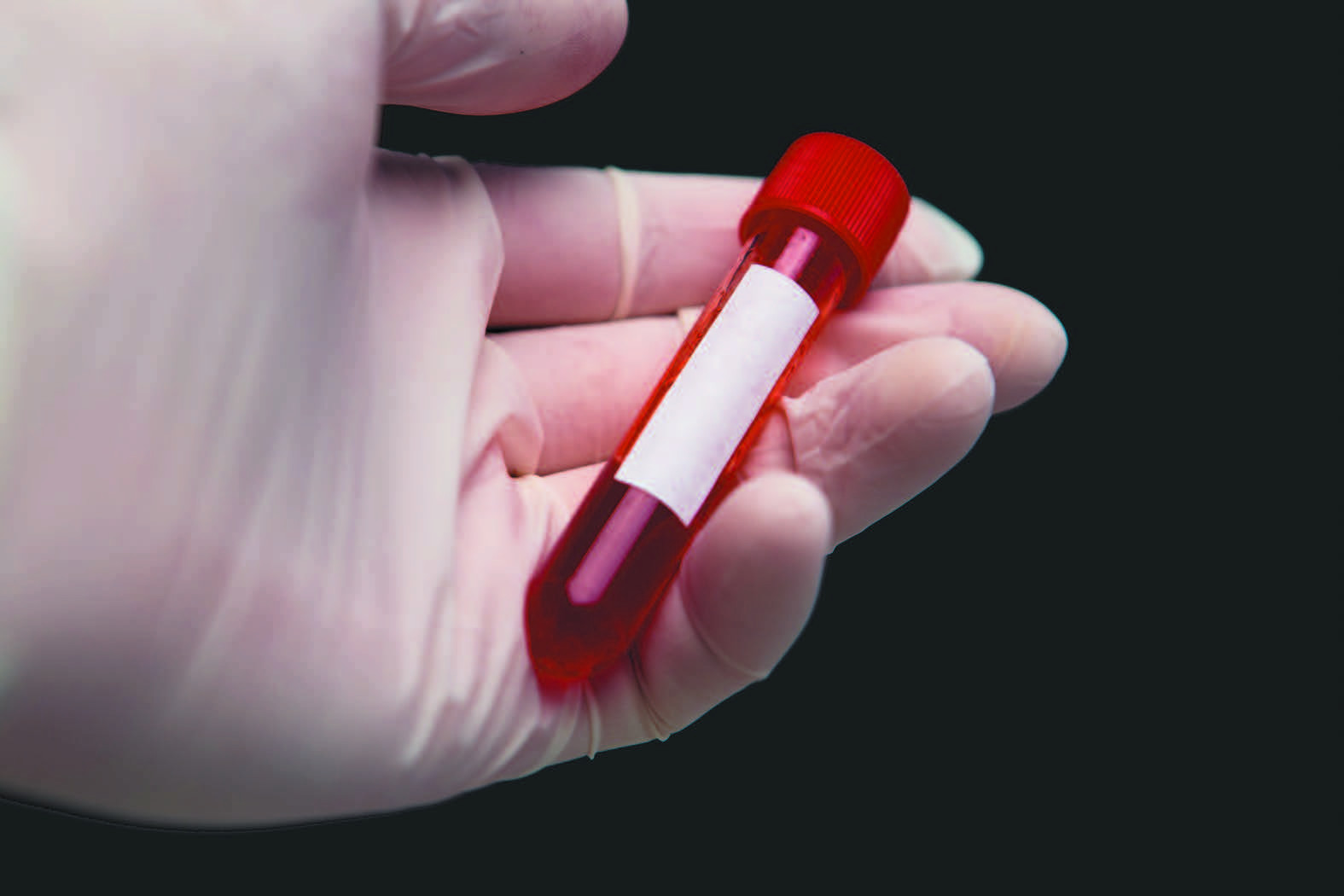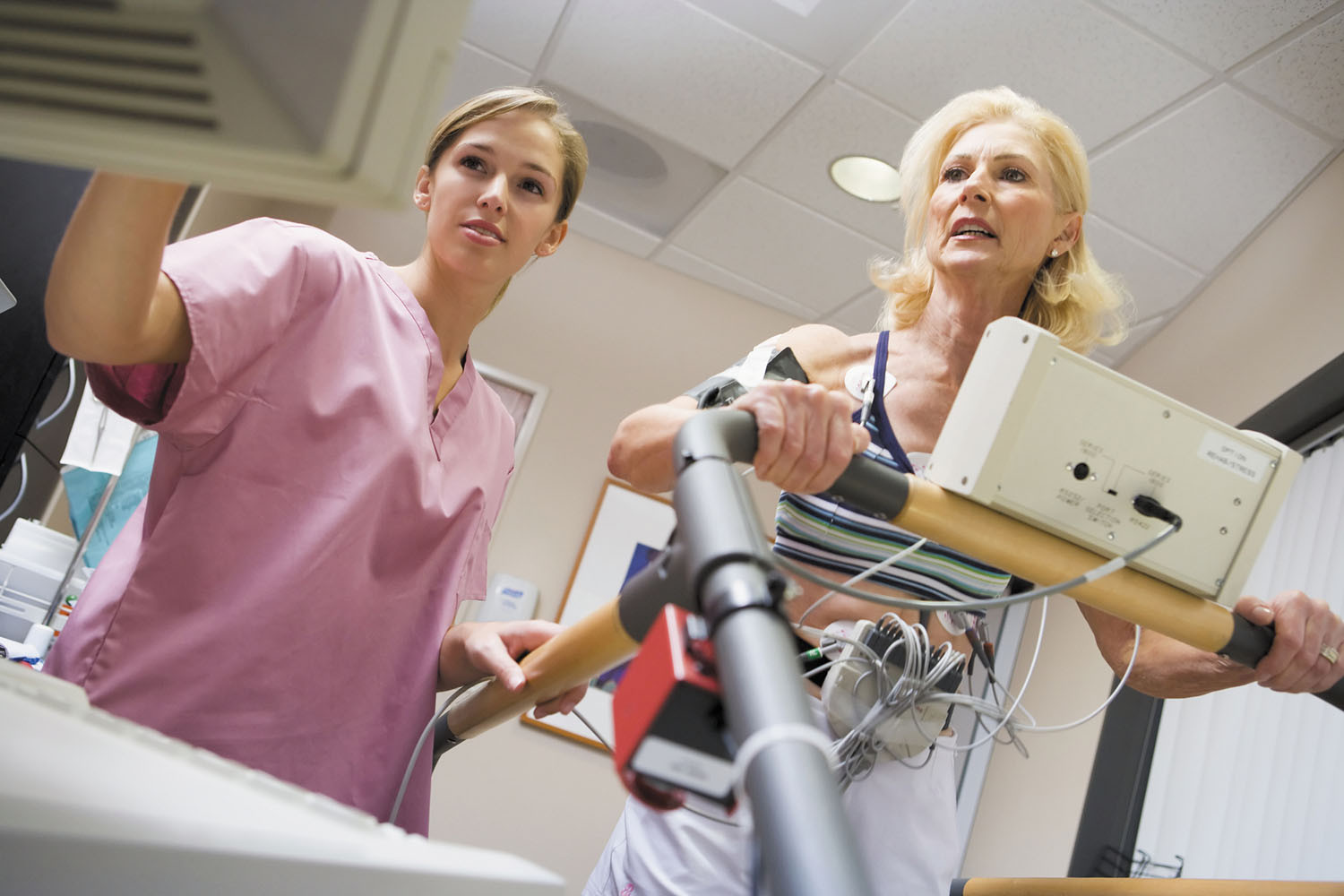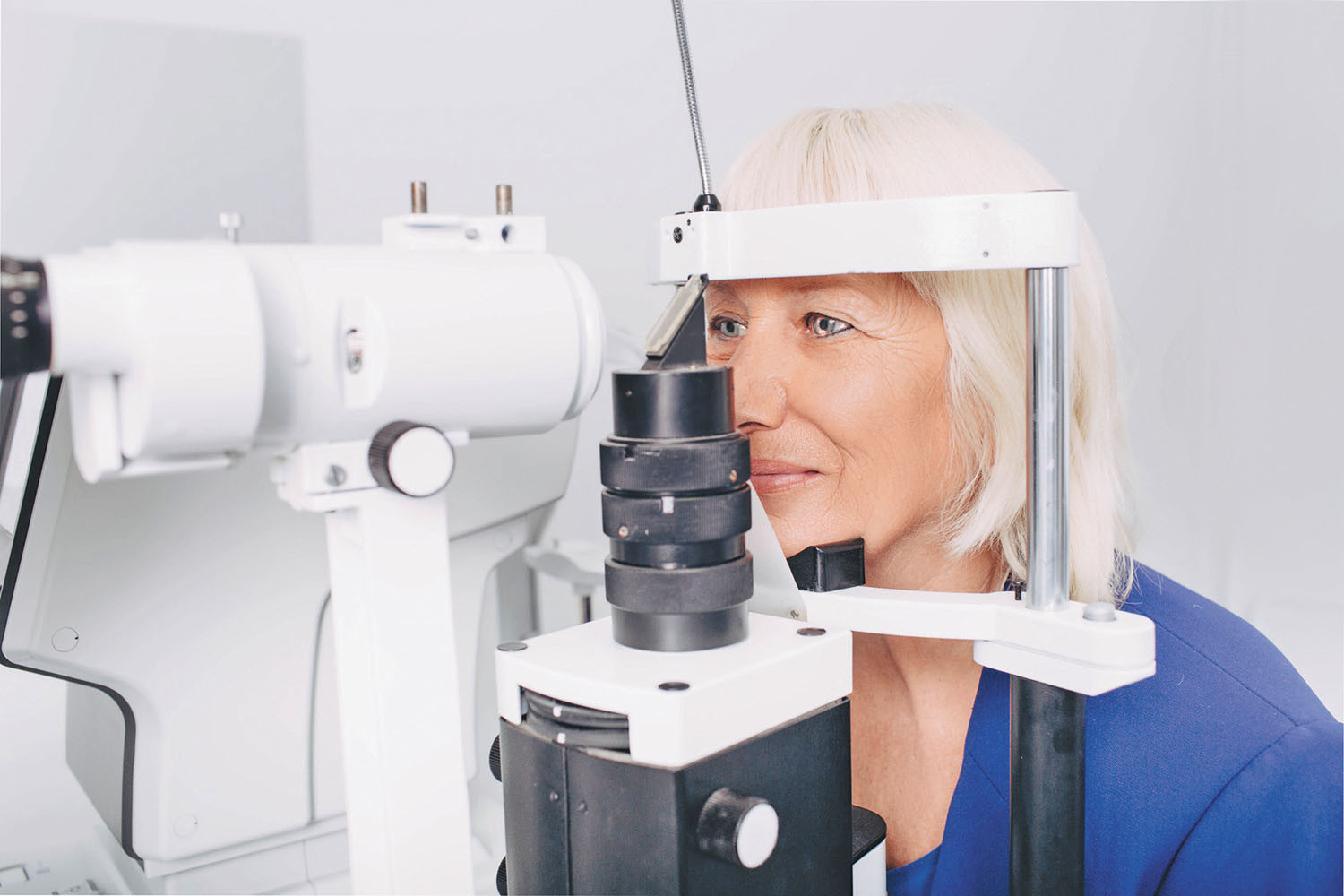
Daily cup of coffee may prevent afib recurrence

Gene-editing therapy lowers harmful blood fats in early study

What is EMDR therapy, and who can it help?

GLP-1 drugs versus bariatric surgery for treating obesity

Trying to lose weight? Be careful not to lose muscle

Two dumbbells, three exercises, and 10 minutes

Easing the emotional burden of IBS

Modify your push-ups to meet your fitness level

What is long QT syndrome?

Stroke survivors may benefit from very low LDL levels
Medical Tests & Procedures Archive
Articles
What is inflammation?
Think of inflammation as the body's natural response to protect itself against harm. There are two types: acute and chronic. You're probably more familiar with the acute type, which occurs when you bang your knee or cut your finger. Your immune system dispatches an army of white blood cells to surround and protect the area, creating visible redness and swelling. The process works similarly if you have an infection like the flu or pneumonia. So in these settings, inflammation is essential—without it, injuries could fester and simple infections could be deadly.
Chronic inflammation
But chronic inflammation can also occur in response to other unwanted substances in the body, such as toxins from cigarette smoke or an excess of fat cells (especially fat in the belly area). Inside arteries, inflammation helps kick off atherosclerosis—the buildup of fatty, cholesterol-rich plaque. Your body perceives this plaque as abnormal and foreign, so it attempts to wall off the plaque from the flowing blood. But if that wall breaks down, the plaque may rupture. The contents then mingle with blood, forming a clot that blocks blood flow. These clots are responsible for the majority of heart attacks and most strokes.
What to expect during an exercise stress test
Although no longer routine, this test is still a common, safe way to assess people with heart disease symptoms.
Image: © monkeybusinessimages/Getty Images
That chest discomfort you felt during your evening walk disappeared once you got back home. But a week later, you're carrying a laundry basket upstairs and the pain returns, although only briefly. It's time to call your doctor to discuss these symptoms — and possibly undergo an evaluation for coronary disease.
One test you may need is an exercise stress test, also called a treadmill test. As recently as a decade or so ago, doctors ordered these tests as part of a routine check-up in middle-aged and older men, regardless of their symptoms. Today, they're done mainly in people with symptoms that suggest heart disease, says Dr. Hicham Skali, a cardiologist at Harvard-affiliated Brigham and Women's Hospital. "In general, that means stable angina, which refers to chest pain that occurs in predictable patterns during exercise or other exertion," he says. Angina occurs when the heart muscle isn't getting enough blood, which is more likely during physical activity.
Seeing your way to better eye health
Maintaining your vision as you age requires a proactive approach.
Did you know that women are more likely than men to have eye conditions that can lead to vision loss, such as age-related macular degeneration, glaucoma, and cataracts? According to the American Academy of Ophthalmology, more than 60% of people with these conditions are women, in part because they live longer, and risk rises with age.
While women may be more at risk for eye disease, you should also know that in many instances, vision loss is not inevitable if you are proactive about your eye health.
5 tips to help you stay safe during medical treatment
Medication errors and communication problems may put people at risk.
It's been 20 years since the Institute of Medicine published its landmark report To Err is Human. It found that as many as 98,000 people were dying each year from preventable medical errors, prompting an industrywide patient safety effort that has spanned the past two decades.
An editorial published in JAMA Dec. 29, 2020, notes that in the years since that report came out, hospitals and doctors have made numerous changes that have succeeded in reducing preventable problems, such as hospital-acquired infections, falls, and medication-related errors. But more work remains to be done. Mistakes still happen.
Imaging overload: How many tests are too many?
Diagnostic technology makes it possible to detect many conditions. But is it safe to get lots of x-rays or CT scans?
When your doctor orders an occasional x-ray or computed tomography (CT) scan, you probably focus on the findings, not the amount of radiation you'll be exposed to. But if you need numerous tests, you may wonder if you're getting too much radiation exposure and how it might affect you. The concern about radiation exposure is an increased risk for developing cancer later in life. Ionizing radiation from tests such as x-rays or CT scans has the potential to damage tissue in the body, including cell DNA.
"As DNA is damaged, this causes mutations. Some of these are repaired by our cells, but others escape repair. In rare circumstances, these mutations may cause cells to divide rapidly without control," explains Dr. Mark Hammer, a radiologist with Harvard-affiliated Brigham and Women's Hospital. "If cancer were to develop, it could take 10 to 20 years for it to become apparent."
Should I continue PSA screening for prostate cancer?
On call
Q. I am 74 years old and unsure whether I want to continue with PSA screening for prostate cancer. Before deciding, I wanted to better understand my options since I probably would not want surgery or radiation therapy if I do have prostate cancer. What is your approach?
A. No matter what your age, men should ask themselves these types of questions before having a blood test for PSA (prostate-specific antigen) to look for hidden prostate cancer.
The story on heart stents
Whether you've had a stent placed or may need one in the future, here's what you should know about these tiny devices
Close to a million heart stents to open blocked or narrowing arteries are implanted each year in the United States, and as you age, the odds rise that you'll end up on the list of recipients.
"Getting a stent can save your life during a heart attack, but what you do after the procedure can dictate your future heart health," says Dr. C. Michael Gibson, a cardiologist with Harvard-affiliated Beth Israel Deaconess Medical Center.
Arm yourself to get better blood pressure readings
In the journals
Blood pressure readings are usually done on only one arm, but a new analysis makes the case for checking both arms, as the difference between them may suggest an elevated risk for heart disease. The findings were published in the February 2021 issue of Hypertension.
Researchers examined 24 studies that measured blood pressure in both arms in 53,827 adults without high blood pressure. They found that a difference of more than five points between the left and right arm systolic readings (the top number) was linked with a 9% higher risk for a first-time heart attack or stroke and a 6% increase in cardiovascular death within 10 years. The greater the difference between the two readings, the higher the risk.
Genetic testing to tailor heart drug prescriptions?
Your genes affect how your body responds to many drugs. But pharmacogenomic testing still isn't ready for routine use.
Most genetic tests focus on your odds of developing certain diseases or health conditions. But some — known as pharmacogenomic (or pharmacogenetic) tests — can reveal how your body may respond and react to different medications. To date, researchers have identified more than 400 genetic variations known to affect the metabolism of numerous drugs, including some that help lower cholesterol or prevent blood clots (see "Pharmacogenomics of common heart drugs").
In theory, knowing how people metabolize specific drugs could help doctors choose the safest, most effective treatment for their patients. But in practice, it's not that straightforward, says Dr. Jason Vassy, assistant professor of medicine at Harvard Medical School and a primary care physician at the VA Boston Healthcare System.
Racial disparities and early-onset colorectal cancer: A call to action
In the last decade, overall rates of colorectal cancer have been falling among the general population in the US. However, African Americans are more likely to develop colorectal cancer at younger ages, and to die from it. The reasons for this disparity are unclear, but they are rooted in socioeconomic and racial inequities.

Daily cup of coffee may prevent afib recurrence

Gene-editing therapy lowers harmful blood fats in early study

What is EMDR therapy, and who can it help?

GLP-1 drugs versus bariatric surgery for treating obesity

Trying to lose weight? Be careful not to lose muscle

Two dumbbells, three exercises, and 10 minutes

Easing the emotional burden of IBS

Modify your push-ups to meet your fitness level

What is long QT syndrome?

Stroke survivors may benefit from very low LDL levels
Free Healthbeat Signup
Get the latest in health news delivered to your inbox!
Sign Up











